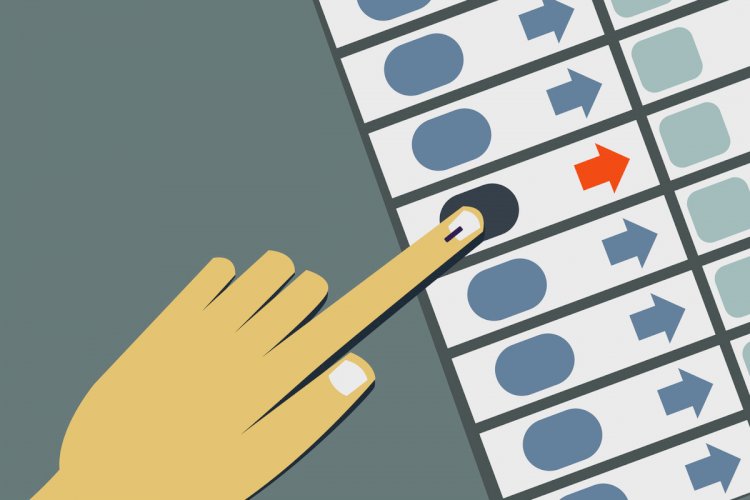Nation of elections
For Printing Download Epaper from files section from bottom of this page

Different people describe India in different words. But, India should be correctly described as nation of elections. Every year, two or three or sometimes five states go to polls in India and the government takes popular decisions to appease voters. In March April, five states elections were held and till then, the petrol and diesel rate hike was withheld. On the last day of elections, the rates of both fuels were increased substantially. Prime minister Modi had raised a good idea of holding all elections at a time. The idea was not gone down well opposition parties who smell Modi’s some design to control the election system. But the idea has several advantage if brought in force. In Corona pandemic situation, due to five states elections, Corona infection massively spread in the country resulting in more lethal second surge. It
triggered lockdown which led to another economic disaster. So, we should all the options to avoid Corona infections and simultaneous elections is one of the best options. A well-reasoned debate on a concept as important as “one nation, one election” is called for. The idea has been around since at least 1983, when the Election Commission first mooted it. The concept needs to be debated mainly around five issues: Financial costs of conducting elections; cost of repeated administrative freezes; visible and invisible costs of repeatedly deploying security forces; campaign and finance costs of political parties; and the question of regional/smaller parties having a level playing field. he costs of conducting each assembly or parliamentary election are huge and, in some senses, incalculable. Directly budgeted costs are around Rs
three hundred crore for a state the size of Bihar. But there are other financial costs, and incalculable economic costs. Before each election, a “revision” of electoral rolls is mandatory. Each election means teachers missing from schools and colleges, and on election duty, the entire revenue machinery on election-related work, officers and vehicles of practically all other departments “requisitioned” for election duty, disrupting the work of, say, building roads, or supervising welfare schemes. In India, many booths are situated in such remote area that one can reach there on foot and the number of voters is just one. These costs of the millions of man-hours used are not charged to the election budget; and the economic costs of lost teaching weeks, delayed public works, badly delivered or undelivered welfare schemes to the poor have never been calculated. The Model Code of Conduct (MCC) has economic costs
too. Works may have been announced long before an election is announced, but tenders cannot be finalised, nor work awarded, once the MCC comes into effect. Time overruns translate into cost overruns. But the huge costs of salaries and other administrative expenditures continue to be incurred. Add to this the invisible cost of a missing leadership. Ministers are politicians, and politicians need to campaign, to select candidates, and to devise strategy for their party. The time for their ministerial duties reduces sharply, in spite of most of them putting in 16-18 hours of work each day. Important meetings and decisions get postponed, with costs and consequences that are difficult to calculate. These financial and
economic costs are incurred repeatedly. There is little doubt that the fiscal and economic costs of an election are not trivial, and that two elections, held separately, will almost double costs, including those incurred by political parties themselves. There are also huge and visible costs of deploying security forces and transporting them, repeatedly. Fears about the Centre somehow gaining greater power, or regional parties being at a disadvantage during simultaneously held elections seem naïve. Fixed five-year terms for state legislatures in fact take away the central government’s power to dissolve state assemblies. Regional parties are supposed to be at a disadvantage because in simultaneously held elections, voters are
reportedly likely to predominantly vote one way, giving the dominant party at the Centre an advantage. Regional parties object to voters mindset that, vote for a national issue and simultaneous polls they vote for the same ruling party. This can’t be denied. But, the regional parties should not take narrow vision and they can win also if the wave is anti government at the center. Several commentators seem to have the strange notion that if a government loses its majority in the House, it necessarily means fresh elections. Firstly, with the current anti-defection law, it is virtually impossible for a ruling party/coalition to lose numbers. Secondly, even if a Prime Minister or Chief Minister loses a vote of confidence, those who voted against her have a majority, and their leader should become the Prime Minister or the Chief Minister. The dissolution of Parliament or Assembly is not a necessary consequence.

 Active Times
Active Times 

















